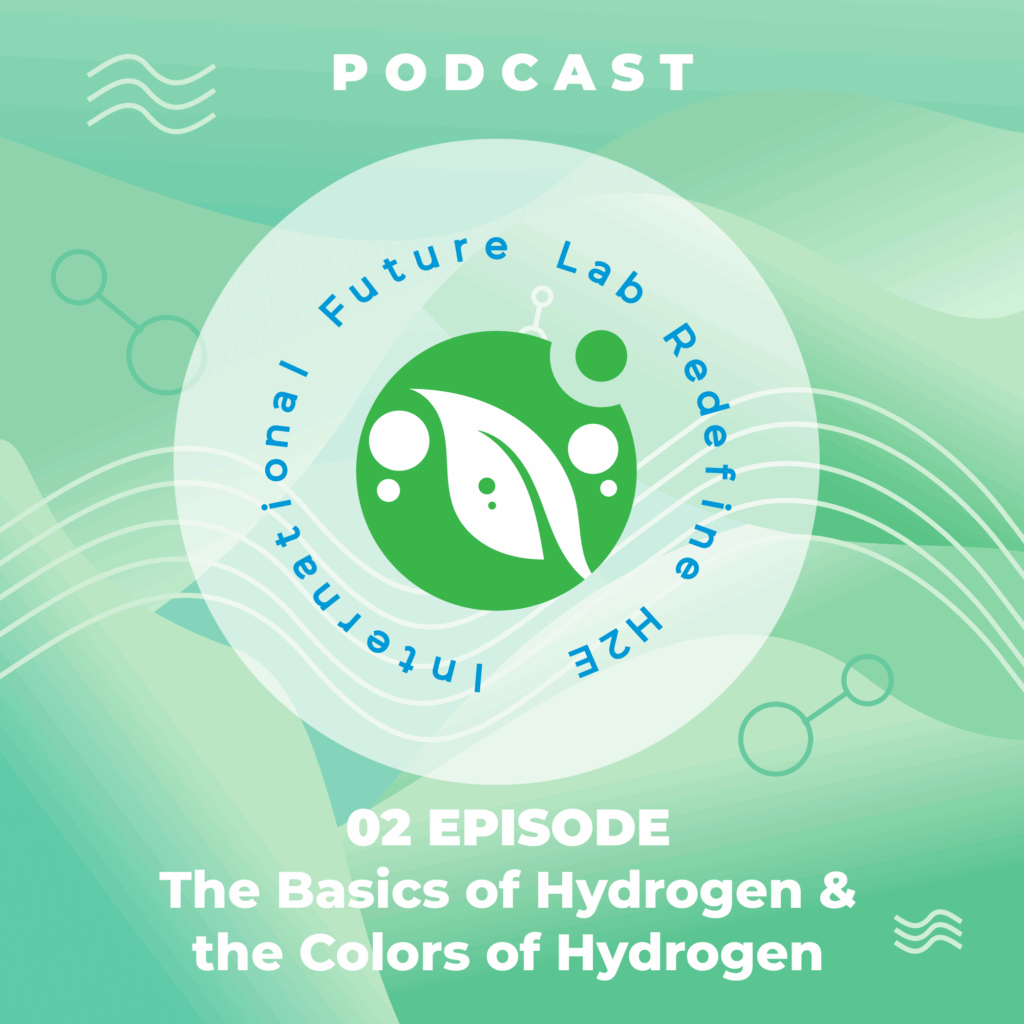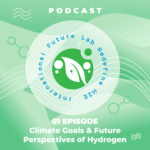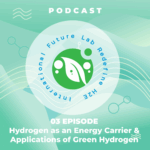EPISODE 02
The Basics of Hydrogen and the Colors of Hydrogen
Rethinking hydrogen. Redefining energy.
Whether it’s technical innovations, political frameworks, or economic developments, we deliver in-depth insights into one of the most exciting technologies driving the energy transition: green hydrogen.
We apologize for any technical deviations in the audio recordings.

About the episode
This episode focuses on the different types of hydrogen and their importance in the energy transition. We explain what green, blue, and gray hydrogen are and how they are produced. Additionally, we discuss their respective advantages and disadvantages.
Topics:
- What is hydrogen and how is it produced?
- Hydrogen color theory: Green, Turquoise, Blue, Gray
- The role of hydrogen in the energy transition
Interview
Understanding Hydrogen: The Element Shaping Our Energy Future
An interview with Dr. Lydia Maketo from the Redefine H2E Team
Hydrogen has the potential to transform our energy systems, offering a pathway away from fossil fuels and towards a sustainable future. But what exactly is hydrogen, how is it produced, and why does its “color” matter for our climate goals?
In the latest episode of Redefine H2E, Dr. Lydia Maketo one of our guest researchers at the Technical University of Munich unpacks these questions.
Why Hydrogen Matters
Lydia Maketo:
Hydrogen is the most abundant element in the universe, but on Earth, it doesn’t exist freely in its pure form. It’s always bound to other elements, like in water or hydrocarbons. To use it as an energy carrier, we first need to extract it.
Once produced, hydrogen can fuel vehicles, power industrial processes, and store renewable energy. Crucially, hydrogen can be converted back into electricity in fuel cells, producing only water as a byproduct, making it a clean energy carrier—if produced sustainably.
How Hydrogen is Produced: The Color Code
Not all hydrogen is created equal, and the production method determines its climate impact.
The main types:
Green Hydrogen is produced via electrolysis using renewable electricity, making it completely CO₂-free.
Blue Hydrogen comes from natural gas but uses carbon capture and storage (CCS) to reduce emissions.
Gray Hydrogen, the most common today, is also produced from natural gas but without CCS, emitting significant CO₂.
Turquoise Hydrogen is made through methane pyrolysis, producing solid carbon instead of CO₂, with sustainability depending on the energy source.
Lydia Maketo:
Green hydrogen is the gold standard, but it’s currently more expensive than fossil-based alternatives. Our challenge is to scale up green hydrogen production while reducing costs, making it accessible for global energy needs.
Hydrogen: A Key Player in the Energy Transition
Hydrogen’s versatility allows it to be used in fuel cells for transport, burned in industrial furnaces, or stored for later use when renewable energy supply is high. Its high energy density per unit mass makes it especially attractive for sectors like heavy industry and long-haul transport.
Lydia Maketo:
Hydrogen has been part of industrial processes for decades, but its potential as a clean energy solution is what makes it truly exciting for the future.
Moving Forward
As the Redefine H2E team continues to explore hydrogen’s role in achieving climate goals, understanding the basics is a crucial first step. The color of hydrogen matters because it tells us about its sustainability. If we want hydrogen to help us reach net zero, we need to prioritize green hydrogen production globally.
Meet the Hosts

Norina Auburger
PR Team Assistant
I am part of the BMBF-funded Future Lab Redefine H2E, a project located at the Chair of Energy Systems of the Technological University of Munich, Germany.

Dr. Lydia Maketo
Guest Researcher
I am an expert for the acceptance of technology and one of the guest researchers at the Technical University of Munich.




